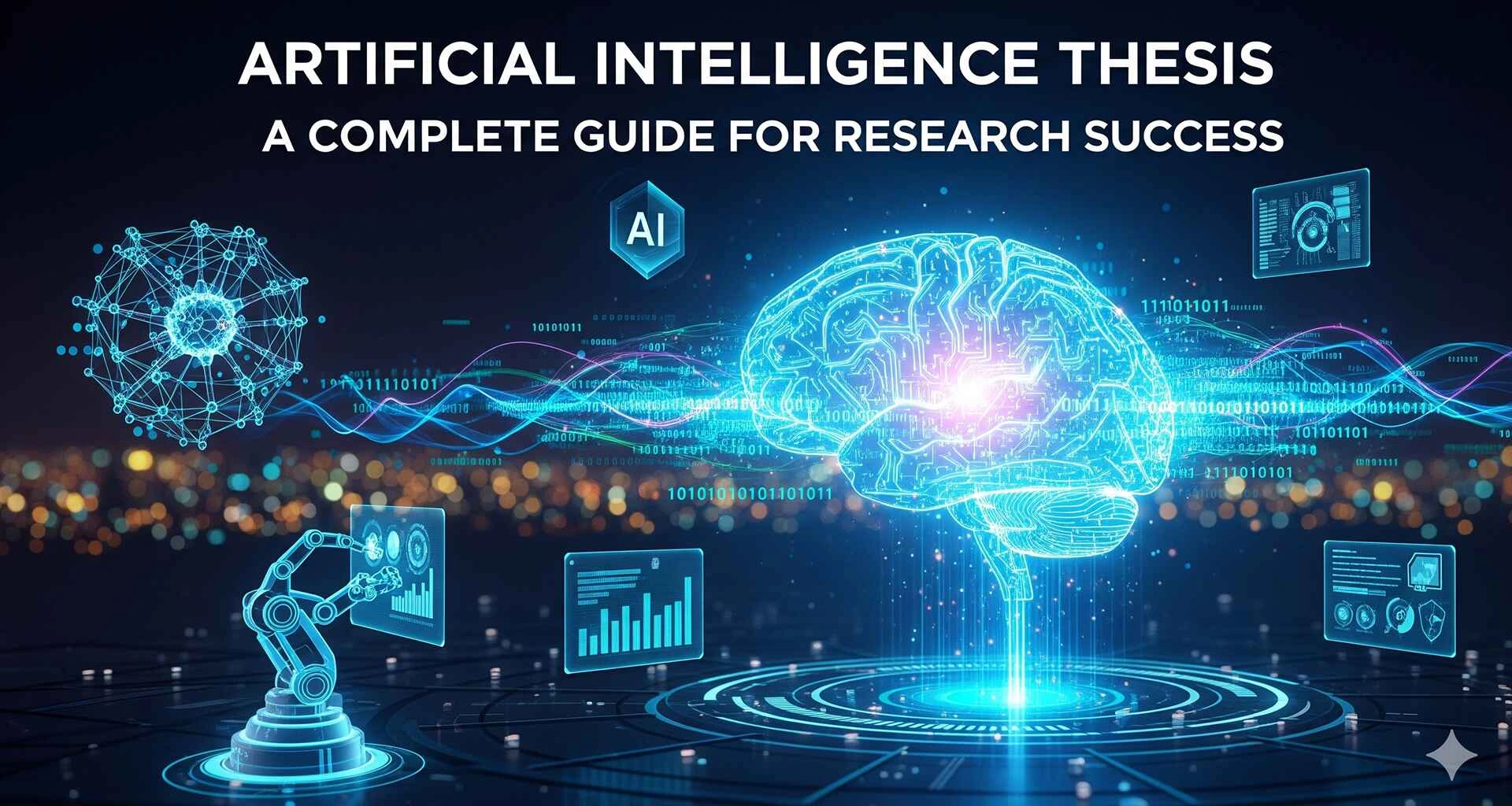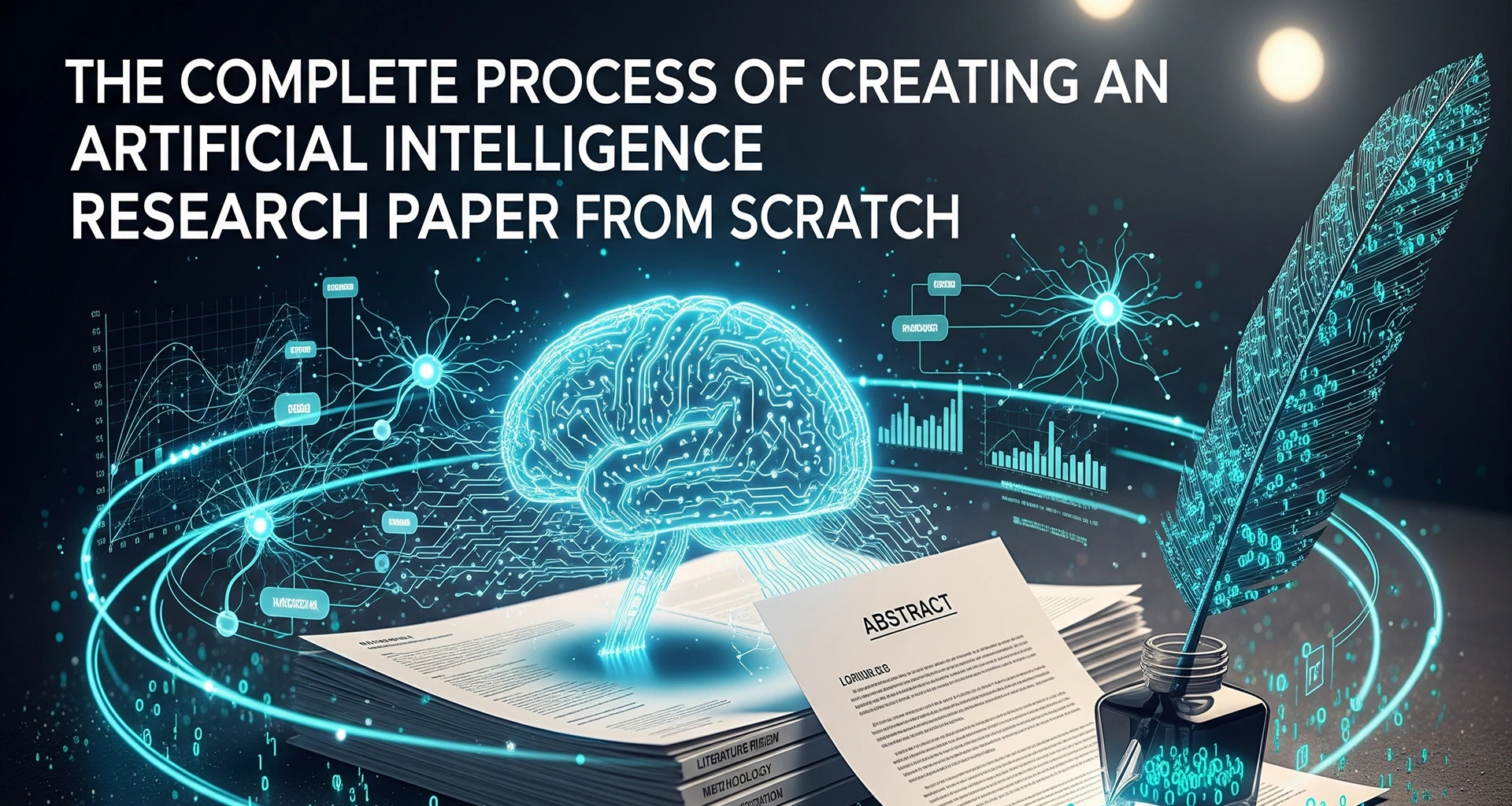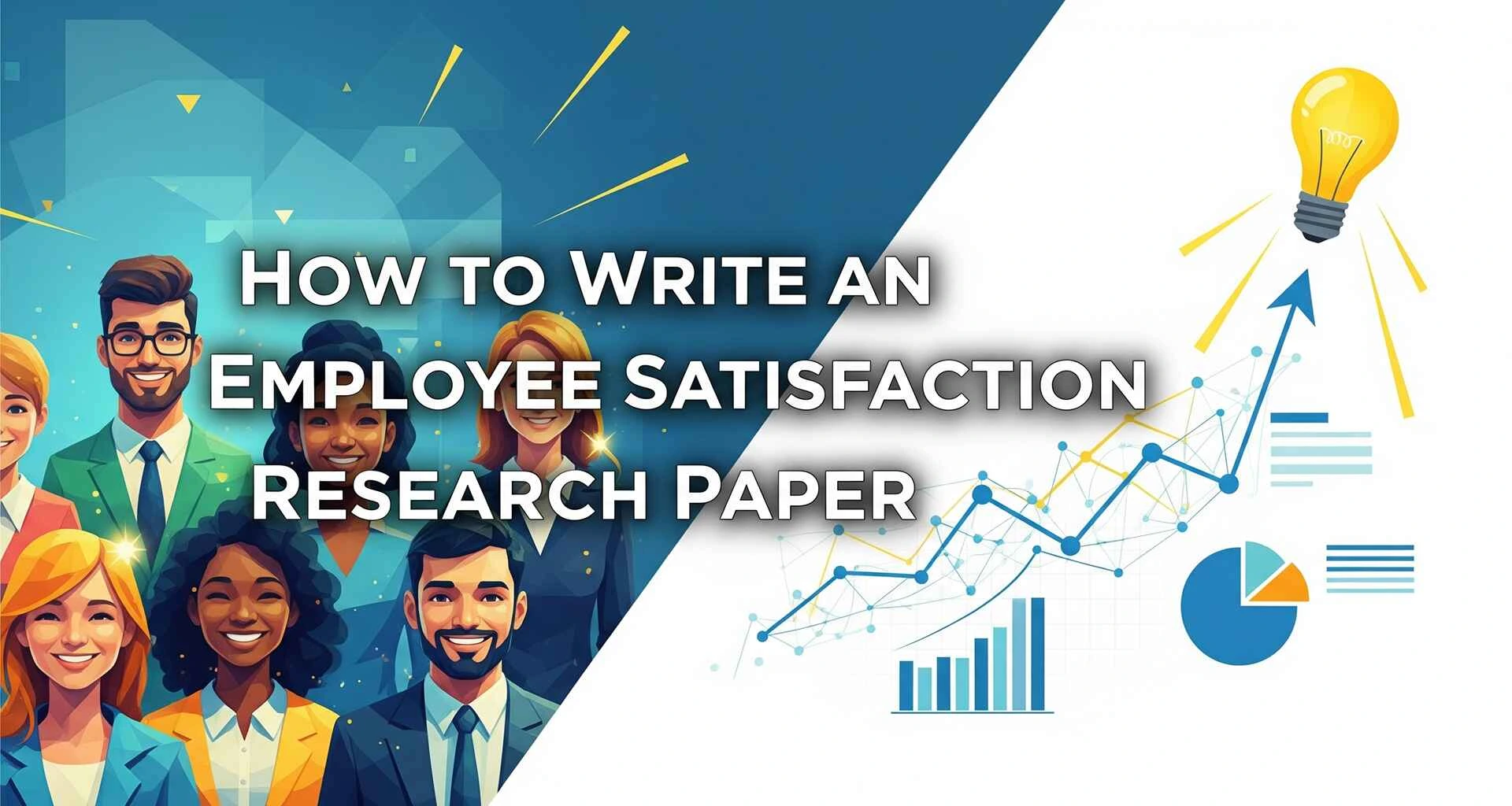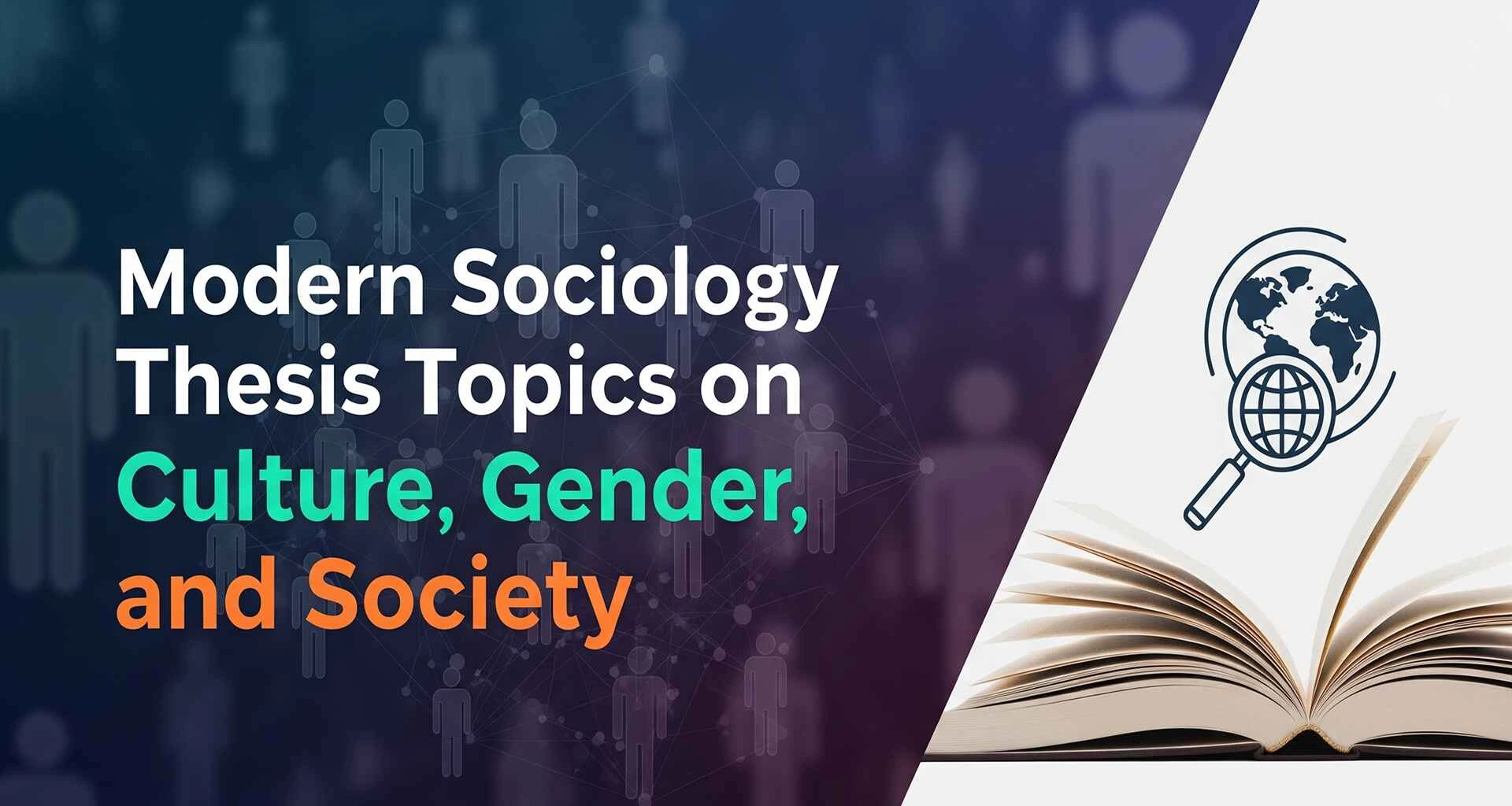

Santhi.GN
Artificial Intelligence (AI) has rapidly become one of the world's most researched and most rapidly evolving disciplines. Its ability to mimic human intelligence, automate processes, and drive innovation makes it a cornerstone of today's digital revolution. For a student, a thesis in Artificial Intelligence thesis is not merely completing a degree it opens career opportunities, awakens innovation, and creates scholarly distinction. Significantly, it enables scholars to explore interdisciplinary applications, from law to medicine. This blog will guide students and scholars through every important step in thesis success.
An Artificial Intelligence Thesis is a scholarly paper that contains novel research in AI theory, algorithms, or applications. Contrary to research papers with narrow focus or projects with emphasis on implementation, a thesis combines theory, critical analysis, and experiments into a single product. Originality and contribution characterize its worth. More and more, AI theses also investigate novel interdisciplinary areas such as healthcare, climate, or policy, which increase impact. A thesis is not only evidence of competency but also a scholarly work of enduring importance.
AI is now among the most sought-after areas of research due to its global adoption and capability to revolutionize industries. It transforms economies, develops intelligent systems, and impacts daily life, thus making it a formidable area of research.
AI is currently one of the most desired fields of research because of its worldwide application and ability to transform sectors. It revolutionizes economies, creates smart systems, and affects daily life, hence becoming a powerful field of research
An Artificial Intelligence Thesis gives graduates an edge over others. Employers value those who exhibit better research, innovation, and creativity. A thesis not only shows technical proficiency but also the ability to produce new knowledge, separating researchers from course graduates.
The most popular topics are NLP, robotics, and computer vision. In order to be distinctive, researchers need to explore explainable AI, ethical AI, AI for sustainability, or hybrids with blockchain and quantum computing. These are the hot trends that promise relevance in research and future use.
Typical AI theses usually follow this chapter outline:
Introduction – sets objectives, research questions, and relevance.
Literature Review – evaluates past work and highlights inconsistencies.
Methodology – outlines methods, frameworks, and data used.
Experiments & Results – presents evidence-based findings.
Discussion – interprets results and consequences.
Conclusion & Future Work – summarizes contribution and suggests future work.

Students face a number of challenges when thesis writing ai projects.
Complex Problems: AI demands advanced coding and math. Solution: Break tasks into bite-sized, simple objectives.
Data Limitations: Poor quality data hinders research. Solution: Use open-source or artificial datasets.
Time Pressure: It is difficult to coordinate tests with schedules. Solution: Develop schedules and organize work.
Skill Shortages: Coding or theory shortfalls serve as obstacles. Solution: Rely on tutorials and co-collaborations.
With persistence and ordered preparation, these problems can be affluent learning opportunities.
A successful Artificial Intelligence Thesis requires strong tools and resources:
Programming Languages (Python, R, Julia): Python dominates AI, with rich libraries.
Frameworks (TensorFlow, Keras, PyTorch): Enable speedy model design, test, and train.
Datasets (ImageNet, COCO, Kaggle): Provide substance to train accurate AI models.
Cloud Platforms (AWS, Google Cloud, Azure): Offer elastic compute for heavyweight AI workloads.
Visualization Tools (Matplotlib, Tableau): Facilitate easier presentation of results for inspection.
All these allow researchers to test new ideas, repeat results, and publish working AI models that conform to global standards.
Well-crafted Artificial Intelligence Thesis is not only a scholastic requirement it determines the future of AI research. As AI expands into fields like quantum computing, green machine learning, and AI-governed governance, students' feedback becomes imperative.
Your thesis can form the foundation for startups, patents, or interdisciplinary research, showing its value outside the academia environment. Focus on explainable and ethical AI ensures that your work not only breaks new ground but also is responsible for addressing global challenges.
Long term, an AI thesis can take careers into academia, business leadership, or entrepreneurship. It allows researchers to become part of a global movement making AI for society. With imagination and wonder, your thesis is part of a legacy shaping future intelligence.

Even with robust interest, most of the students are unable to finalize their Artificial Intelligence Thesis. Some of the challenges are lack of proper guidance, poor research approach, or technical issues that impede progress. This is why expert assistance is essential.
Expert coaches and thesis writing services can assist with:
Professional assistance not only saves time but also provides the chance of coming up with an outstanding thesis. For irate students, professional assistance guarantees quality without violating scholarly ethics.
An appropriate Artificial Intelligence Thesis guide is the most important aspect of both academic acclaim and career development. AI research is evolving at a previously unprecedented extent, and a thesis provides the perfect stage on which to advance and provide a meaningful contribution.
In order to succeed, researchers must stay updated, be ethical, and innovative in utilizing the best tools and aid systems available. Whether you opt to shine in academia or industry, your AI thesis is the foundation of your success in the future.

The Complete Process of Creating an Artificial Intelligence Research Paper from Scratch

Corporate Law Thesis Topics – A Comprehensive Guide for Law Scholars

How to Write an Employee Satisfaction Research Paper (With Examples & Ideas)

Modern Sociology Thesis Topics on Culture, Gender, and Society

Choosing the Right Methodology for a Soil Analysis Research Paper